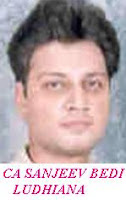
Hello Amreshji and Mr Parmar,
There is no doubt that no TDS is deductible in case commission is paid to a foreigner for soliciting orders abroad. This is despite the Explanation to Section 9(2) added by the Finance Act 2007. I'd discussed this issue very thoroughly some time back. Please look up my Message No 13373 dated May 14, 2007. About the fee paid to the American for writing content for an Indian website—what we need to see is: Does payment for writing made to a writer abroad constitute fee for technical services as defined in Explanation 2 below Section 9(1)(vii)? Writing something worth putting up on a site definitely involves skill. There's a technique behind it. Besides Amreshji you said the American would be appointed as the Site Club "Manager". Here's how "fee for technical services" is defined in the Explanation 2:[Explanation [2].—For the purposes of this clause, "fees for technical services" means any consideration […] for the rendering of any MANAGERIAL, technical or consultancy services…[…..[ .A site club manager would certainly be doing much more than banging away at the keyboard. The Explanation added by FA 2007 dispenses with the requirement of the non-resident having a place of business or business connection in India for his income to be subjected to tax in India. So it's difficult, based on a reading of Section 9, to argue that the revenues shared with the American manager of an Indian website won't be subjected to tax in India. But no final conclusion in respect of taxability of a non-resident in India can be drawn until we have referred to the relevant DTAA—in this case the DTAA with the USA. I quote below Article 15 of the Indo-US DTAA because the kind of services in question I think would be in the nature of "Independent Personal Services":[ARTICLE 15 - Independent personal services - 1. Income derived by a person who is an individual or firm of individuals (other than a company) who is a resident of a Contracting State from the performance in the other Contracting State of professional services or other independent activities of a similar character shall be taxable only in the first-mentioned State except in the following circumstances when such income may also be taxed in the other Contracting State :(a) if such person has a fixed base regularly available to him in the other Contracting State for the purpose of performing his activities; in that case, only so much of the income as is attributable to that fixed base may be taxed in that other State; or(b)if the person's stay in the other Contracting State is for a period or periods amounting to or exceeding in the aggregate 90 days in the relevant taxable year.2. The term "professional services" includes independent scientific, literary, artistic, educational or teaching activities as well as the independent activities of physicians, surgeons, lawyers, engineers, architects, dentists and accountants. ]Here the Contracting state means the US and the other contracting state, India. So independent personal services rendered by a resident of the United States would be taxable in the US only, unless the American has spent some time in India in connection with the work, which in the present situation isn't the case. Alternatively, if we take the case of someone in India being appointed to write content for an American website, would his income received in dollars abroad would be taxable in India? Yes very much. So based on this logic, an American writing from abroad for an Indian website can't be brought to tax in India. The new Explanation to Section 9 does not seem to have taken online services rendered across the internet into account. Unless such services are specifically charged to tax in India by suitable and explicit amendments in the Income Tax Act and the DTAA tells us in unambiguous terms the situs of taxation of such incomes, we can safely conclude that payment to a foreigner for services rendered abroad won't be taxable in India. More than the income tax, what you'd need to worry about is the Service Tax by reverse charge. There's no Rs 10 lac-exemption in such cases!Thanks,CA Sanjeev Bedi--- In ICAI_CIRC_MEERUT_ CA@yahoogroups. com, "CA. PRAMOD PARMAR" wrote:>> Dear Memebrs,> > A firm paid commission to a foreigner in foreign currency for getting client> in US> > The foreigner has no office/agent in India> > Whether tds is deductible> > If yes than at what rate.> > Regards,> CA P R Parmar>Hi,I also add here a similar query .A company is running a on line site and now want to engage a person as Site Club manager in US and shall share the new revenue with the individual staying at US who of course is an American. He will be contemporary writer and shall write for the site. Whether tds is deductible u/s 195? If yes, at what rate? How to file TDS returns as the receiver is not having PAN?CA AMRESH VASHISHT







